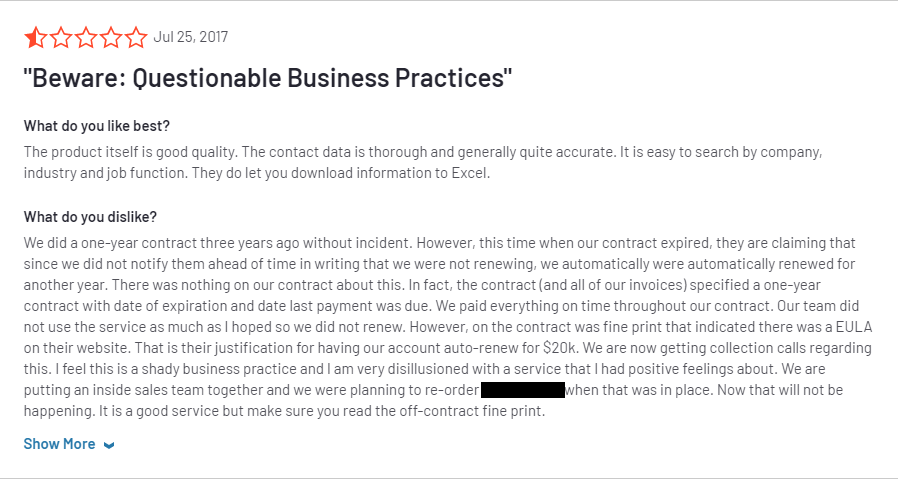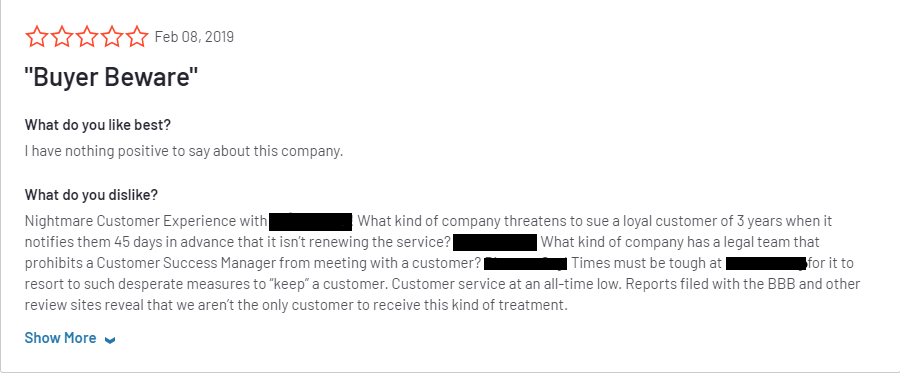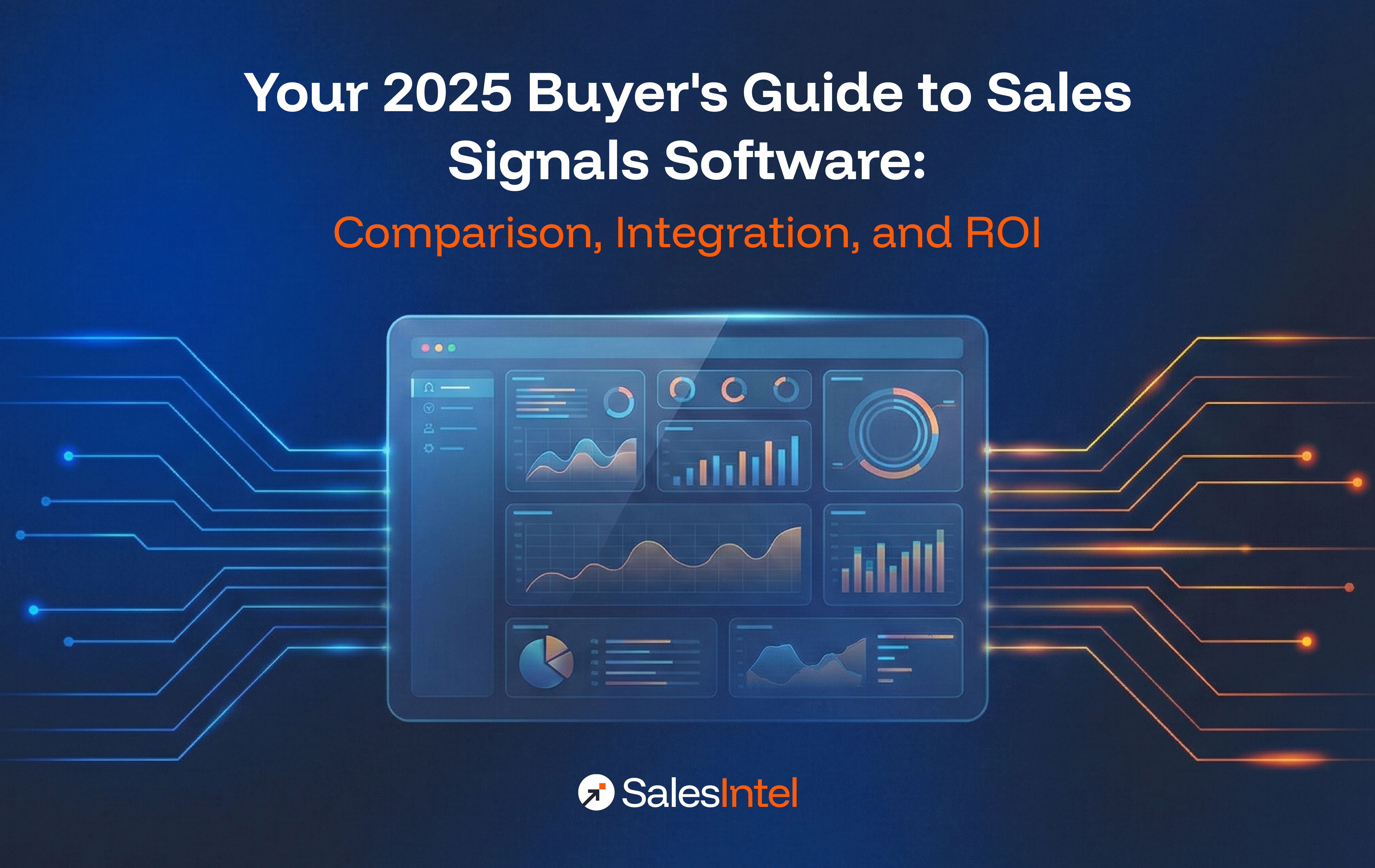Though it may sound counter-intuitive, business relations, with all their written contracts and agreements, still largely operate under the aegis of mutual trust. Except in legal disputes, nobody reads the fine print on those lengthy license agreements or contracts. That is why we often invoke the term “good faith” meaning each party will be transparent about its policies and intentions.
While most businesses operate in good faith to ensure seamless decision-making and avoid any contention, some companies treat it as an opportunity to make unsolicited profits. How would you feel if your airline gave you an upgrade without asking and then charged for it? Well, some SaaS solutions use similar tactics to minimize churn. We aren’t just talking about hidden charges, we’re talking about aggressive renewal policies that use questionable practices to lock users into a renewal before they realize they’ve committed to it.
Take this review of one of the largest and most popular data companies as an example (We have redacted the name of the company because we are focusing on these coercive policies and not any particular organisation):

To cut the point, a customer purchased a one year license and when that expired, the license was auto-renewed without their consent. They weren’t informed of this policy in any of their previous communications and are now getting collection calls to settle the license fee of $20K. Technically speaking, that’s not illegal; there might be certain clauses in their agreement, but as mentioned earlier, nobody really reads the fine print. The point is, such behavior does not reflect good faith and is borderline unethical.
That’s just a part of the story. What if you explicitly requested them not to renew your license? Well, you won’t be charged but there are other coercive options as well that can quickly snowball from unethical to outright harassment.
Here is another review of the same company to offers some perspective:

To put it simply, if you don’t renew your license, there is a good chance that you might be sued for breaching any of their contract agreements. Sounds like blackmail doesn’t it? The last sentence in particular wraps up the whole story, “Reports filed with the BBB and other review sites reveal that we aren’t the only customer to receive this kind of treatment”.
So these reviews aren’t just isolated cases of mismanagement, they outline the standard operating procedure of these firms. Seems they ask themselves a single question; Did the customer request in advance to cancel their license?
- If no, charge them.
- If yes, sue them.
For customers, it’s damned if you do and damned if you don’t. At this point, the least you can do is double-check the renewal policies of your vendor and be upfront about it.




